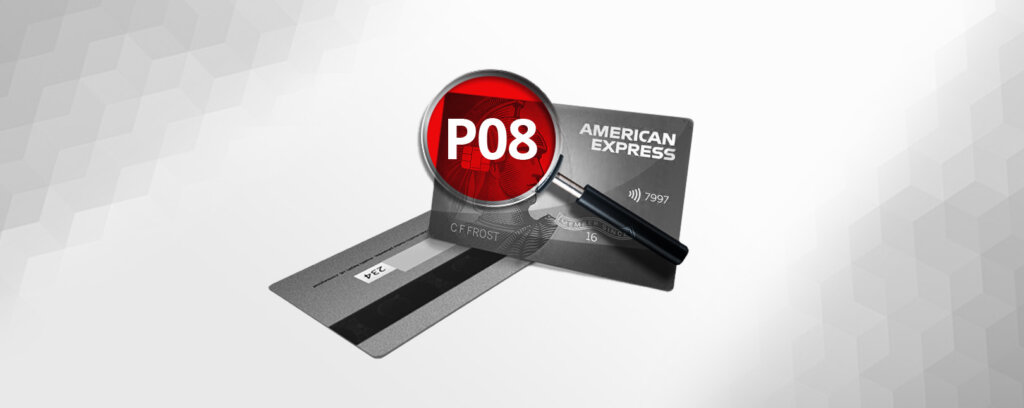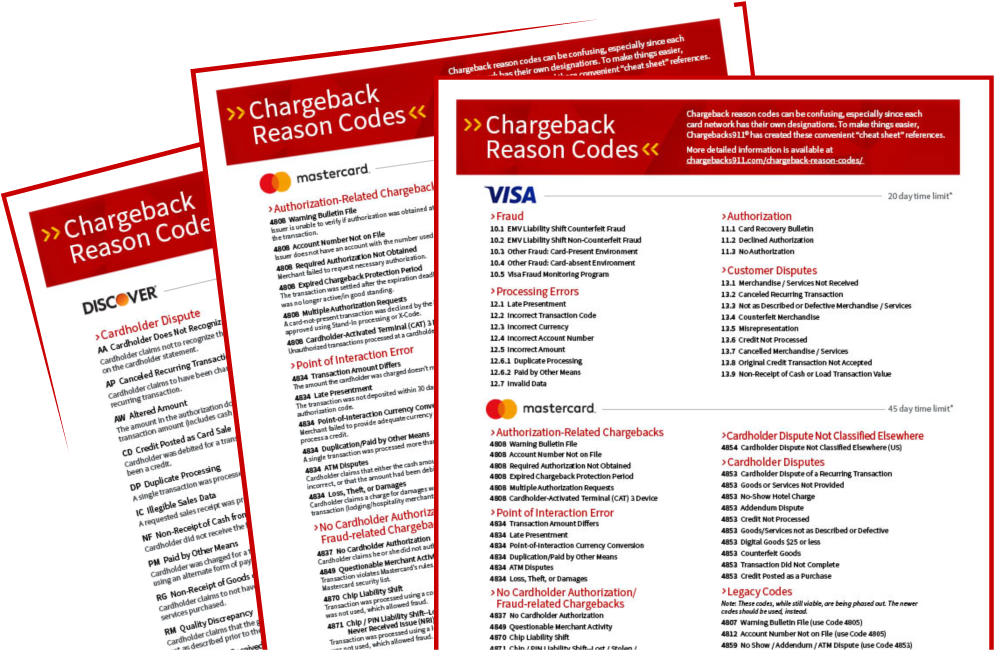
How to Handle Amex Reason Code P08 Chargebacks
American Express breaks down the acceptable causes for a customer to dispute a credit card transaction in their dispute guidelines. This is done for the sake of simplicity and standardization.
Each chargeback trigger has a designated “reason code.” Amex can then assign the appropriate code to each case to show the given reason for the chargeback.
Learn more about Amex reason codes
Today, we’re looking at one reason code in particular — P08 — and exploring the causes, timeframes, fees, and other specifics. We’ll also explore what you can do to prevent these chargebacks from happening.
Recommended reading
- PayPal Account Limitations? Here are 5 Ways to Respond.
- Best Credit Card Processing Companies of 2025 REVEALED
- What Happens When You Dispute a Transaction?
- Spring 2025 Updates to Visa’s Merchant Fee Schedule
- What is Smishing? How to Identify & Prevent SMS Text Scams
- How EMV Chip Cards Work: Pros, Cons, Data Points & More
What is American Express Reason Code P08?
American Express chargeback reason code P08 is “Duplicate Charge .”
When you conduct a transaction involving a credit or debit card, that transaction needs to be submitted for processing. This is a process called “presentment,” and it’s how the money gets transferred from the customer’s account into your account.
Amex has strict rules regarding how you can submit transactions, though. You may submit each transaction for processing only once.
A reason code P08 chargeback is used to explain that you submitted the same charge multiple times, resulting in duplicate charges to the cardholder’s account.

What Caused This Dispute?
Amex Chargeback Reason Code P08 is primarily issued when the same charge gets submitted multiple times to the bank for processing. To demonstrate, this scenario can arise if:
How to Respond to Amex Reason Code P08 Chargebacks
So, what happens if you can prove that no duplicate charge was submitted?
If you encounter an Amex P08 chargeback, it’s essential to address the matter as quick as you can. If you believe the chargeback was mistakenly initiated, you should submit a dispute response through a process called representment.
This process allows you to contest the chargeback by presenting evidence to the card issuer (American Express, in this case), demonstrating that the transaction was valid and complied with their policies. You'll need to compile several critical pieces of evidence to support your case.
Keep in mind that there’s a tight deadline to meet. You have just 20 days to submit your response to American Express. This timeframe includes the time it took for your acquirer to notify you of the dispute, plus any time they spend reviewing and forwarding your case. In practice, this often leaves you with five days or less to prepare and submit your response.
Acceptable Evidence for Amex Reason Code P08 Responses
You can re-represent these charges under the condition that you have compelling evidence.
For American Express reason code P08 chargebacks, you’ll need to provide some documentation showing that both charges in question are valid. For example:
- Transaction receipts or order invoices for both transactions
- Shipping and delivery confirmation information
- Proof of services rendered or completed work
- Phone transcripts or copies of email correspondence with the cardholder
- Screenshots from your CRM, showing unique transaction information
Alternatively, you might have already issued a credit to the buyer as a way of trying to avoid the dispute. In this case, you’ll need to offer proof that you already provided a credit to offset the amount charged.
The success of representment depends on the thoroughness and relevance of the evidence provided. Maintaining detailed records of transactions and communications with customers is vital to effectively counteract all chargebacks, including those under reason code P08.
How to Prevent Amex Reason Code P08 Chargebacks
As the old adage goes, “an ounce of prevention is worth a pound of cure.”
You may never be able to stop chargebacks entirely. But, you can limit your exposure to risk and keep your chargeback ratio in good standing by adopting a few best practices. Generally speaking, you’ll want to:
#1 | Double-Check Failed Attempts
If an initial transaction attempt fails, make sure to doublecheck that it has not been processed already before reattempting.
#2 | Check Your Receipts
Review all your transaction receipts to make sure that cardholders don’t get double billed.
#3 | Process Credits ASAP
If a cardholder gets double charged, make sure to submit a credit to offset the duplicate charge immediately.
Take a Wider View
You can dispute invalid chargebacks from Amex reason code P08. However, it’s much more efficient to take a proactive stance. The same is true of the other chargeback reason codes, as well. A truly effective chargeback management strategy must encompass prevention as well as disputing cases of friendly fraud.
Chargebacks911® can help your business manage all aspects of chargeback reason codes, with proprietary technologies and experience-based expertise. Contact us today for a free ROI analysis to learn how much more you could save.
FAQs
Does Amex investigate chargebacks?
Yes. American Express investigates chargebacks by reviewing the evidence provided by both the merchant and the cardholder to determine the legitimacy of the transaction and decide on the chargeback claim. This process ensures a fair resolution based on the documentation and arguments presented by both parties.
What is the reason code for a chargeback on American Express card?
An American Express chargeback reason code is a code that identifies the specific reason a cardholder or issuing bank has disputed a transaction, guiding the merchant on the nature of the dispute and what evidence may be required to contest it. Each code corresponds to a particular issue, such as unauthorized use, processing errors, or non-receipt of goods or services. Click here to see a full list of Amex reason codes.
Do police investigate chargebacks?
Police typically do not investigate chargebacks as they are considered a dispute between the merchant and the cardholder, handled through the card issuer's internal processes. However, if fraud is suspected as the cause of a chargeback, law enforcement may be involved in investigating the fraudulent activities.
How successful are Amex disputes?
The success of an American Express dispute depends on the merchant's ability to provide compelling evidence that the transaction was valid and in accordance with Amex policies. Success rates vary widely based on the nature of the dispute and the quality of the documentation provided by the merchant.
How does American Express investigate disputes?
American Express investigates disputes by reviewing documentation and evidence provided by both the cardholder and the merchant, such as transaction receipts, proof of delivery, or communication records, to determine the validity of the chargeback claim. This process aims to ensure a fair resolution based on the facts presented by both parties.









